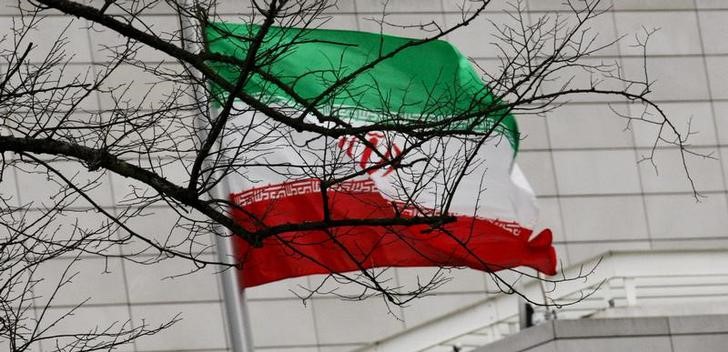Investing.com -- Oil hits its lowest in a month as fears of conflict between the U.S. and Iran ebb. U.S. stocks and emerging market currencies are all on the up, in anticipation of the U.S.-China phase-1 trade deal being signed. The U.K. economy shrunk in November in the run up to the country's general election, and Ford had a dreadful 2019 in China. Here's what you need to know in financial markets on Monday, 13th January.
1. Oil Hits 1-Month Low as Iran Seethes
Protests against the Iranian regime spread across the country for a second day on Sunday, indicating that the bout of instability triggered by the U.S.’s assassination of Revolutionary Guards commander Qassem Soleimani may not yet have run its course.
President Donald Trump issued a tweet in support of the protesters in Farsi over the weekend, adding : “DO NOT KILL YOUR PROTESTERS” in a separate tweet in English aimed at the regime.
Crude oil prices suggest, however, that any tension over a confrontation has well and truly passed. By 6:15 AM ET (11:15 GMT) U.S. crude futures were flat at $59.04 a barrel, having hit a one-month low of $58.71 a barrel overnight. Brent crude was down 0.1% at $64.94 a barrel.
2. Stocks set for higher opening
U.S. stock markets are set to open clearly higher amid a fading of global concerns about conflict between the U.S. and Iran ebb, and anticipation of the U.S.-China trade deal being signed on Wednesday.
By 6 AM ET (1100 GMT), Dow futures were up 127 points or 0.4%, while the S&P 500 futures contract was also up 0.4% and the Nasdaq 100 futures was up a touch more, by 0.5%.
With little on the earnings or data calendar Monday, the market is left to ruminate on a weaker-than-expected jobs report on Friday, or to look forward to the start of earnings season with results from JPMorgan (NYSE:JPM), Citigroup (NYSE:C) and Wells Fargo (NYSE:WFC) on Tuesday.
3. Emerging currencies march higher, led by China
The Chinese currency hit its highest level in over five months against the dollar, as optimism over the economic outlook strengthens ahead of the expected signing of a phase-1 trade deal between the U.S. and China on Wednesday.
The official yuan rate rose as high as 6.8883 to the dollar, its highest since the end of July, when President Donald Trump abruptly escalated the trade war with threats of new import tariffs.
The trade détente has also boosted other emerging market currencies to notable highs. The Russian ruble hit its highest in 20 months against the dollar. The Indonesian rupiah, the Turkish lira and Indian rupee have all risen by between 1.4% and 2.0% against the greenback in the last week as the trade and geopolitical outlooks have improved.
4. U.K. GDP shrunk in November, boosting rate cut hopes
The U.K. economy unexpectedly shrunk in November ahead of the country's general election, strengthening expectations of an interest rate cut from the Bank of England and pushing the pound down below $1.30 for the first time this year.
Gross domestic product fell 0.3% in November, missing forecasts for a flat reading. Industrial production and manufacturing output also weakened. The data mean that growth of 0.1% to 0.2% will be needed in December to stop the economy shrinking in the fourth quarter overall.
Over the weekend, another of the BoE’s rate-setters, Gertjan Vlieghe, had said that the case for an interest rate cut now was building. Vlieghe’s comments followed similarly dovish remarks from BoE Governor Mark Carney and monetary policy committee member Silvana Tenreyro last week.
5. Ford flops in China; Porsche roars
Ford Motor (NYSE:F) reported another dire set of sales in China, the world’s largest auto market, and said that the outlook for 2020 is even worse. Ford’s sales in China fell 26% last year, less than half of what it sold there in 2016, its peak year for sales. It said it expected the local market to keep shrinking this year.
Elsewhere, the Financial Times reported that Nissan (OTC:NSANY) is stepping up contingency plans for a divorce from France’s Renault (PA:RENA), its long-term alliance partner. The news pushed Renault shares down over 2% in Paris.
There was better news from Germany’s Porsche, part of the Volkswagen (DE:VOWG_p) group. It said global sales rose 10% to 281,000, due largely to demand for its Cayenne and Macan SUVs. It also said its all-electric Taycan, introduced halfway through last year, should also boost sales momentum this year.
